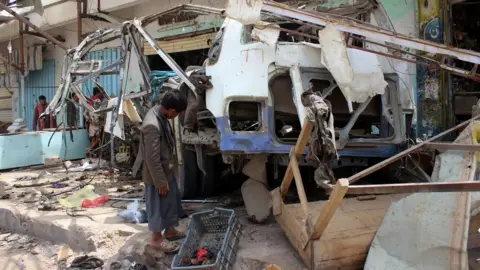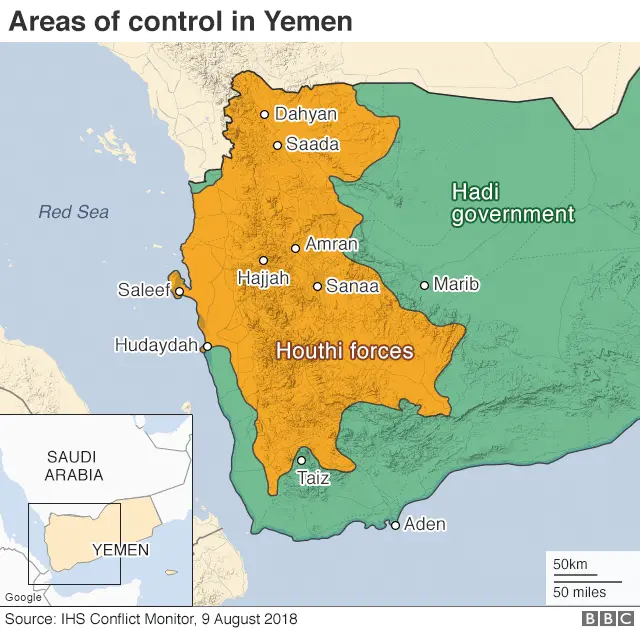Yemen conflict: Saudi-led coalition admits mistakes in deadly bus strike
 AFP
AFPThe Saudi-led coalition in Yemen has expressed regret over "mistakes" made in a deadly air strike on a bus.
More than 40 children were killed in the strike in a market in northern Saada province on 9 August, drawing international condemnation.
In a statement on Saturday, the coalition pledged to hold those responsible for the strike accountable.
But a spokesman for the coalition's own investigation maintained that the strike had targeted a Houthi leader.
The head of the coalition's Joint Incidents Assessment Team (JIAT), Lt Gen Mansour al-Mansour, said its investigation had found that the bus was carrying Houthi leaders and fighters and was therefore a "legitimate" military target, but admitted that the location of the strike had led to collateral damage.
A statement carried by the Saudi state news agency SPA on Saturday said: "The Joint Forces Command of the Coalition expresses regret over the mistakes, extends its sympathies, condolences and solidarity to the families of the victims."
The coalition said it would co-ordinate with the Yemeni government to compensate families of victims and would also review its rules of engagement.
The coalition insists it never deliberately targets civilians, but human rights groups have accused it of bombing markets, schools, hospitals and residential areas.
Earlier this week, the coalition rejected the findings of a UN report which said that war crimes may have been committed by all parties in the conflict.
UN experts accused Yemeni government forces, the coalition backing them, and the rebel Houthi movement of making little effort to minimise civilian casualties.
Last week, another strike to the south of the port city of Hudaydah killed at least 22 children and four women.
Why is there a war in Yemen?
Yemen has been devastated by a conflict that escalated in early 2015, when the Houthis seized control of much of the west of the country and forced President Abdrabbuh Mansour Hadi to flee abroad.
Alarmed by the rise of a group they saw as an Iranian proxy, the UAE, Saudi Arabia and seven other Arab states intervened in an attempt to restore the government.
Almost 10,000 people - two-thirds of them civilians - have been killed and 55,000 others injured in the fighting, according to the United Nations.
The fighting and a partial blockade by the coalition has also left 22 million people in need of humanitarian aid, created the world's largest food security emergency, and led to a cholera outbreak that is thought to have affected a million people.

